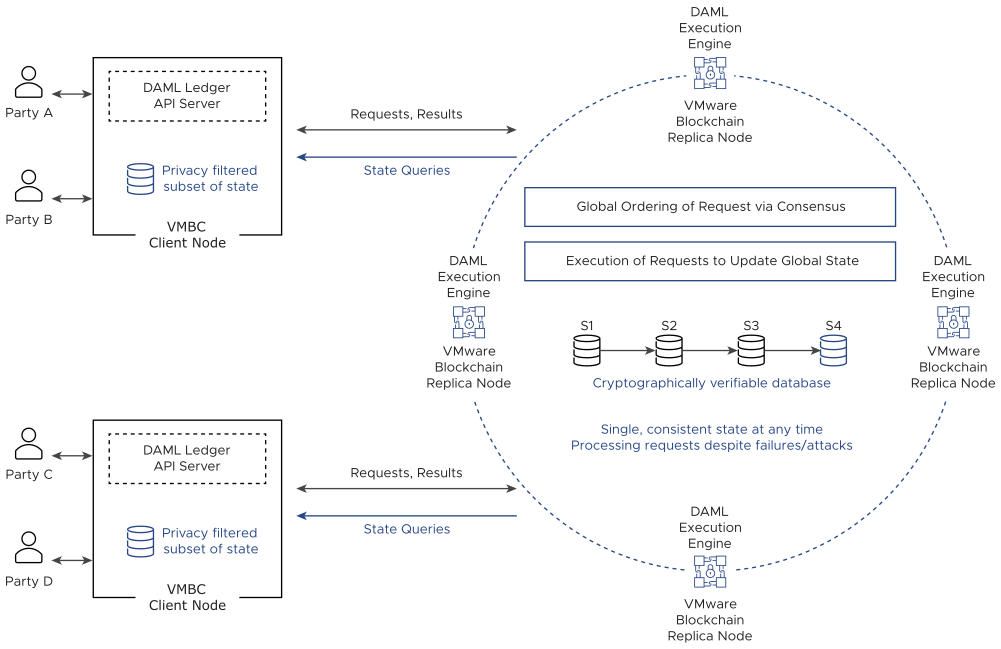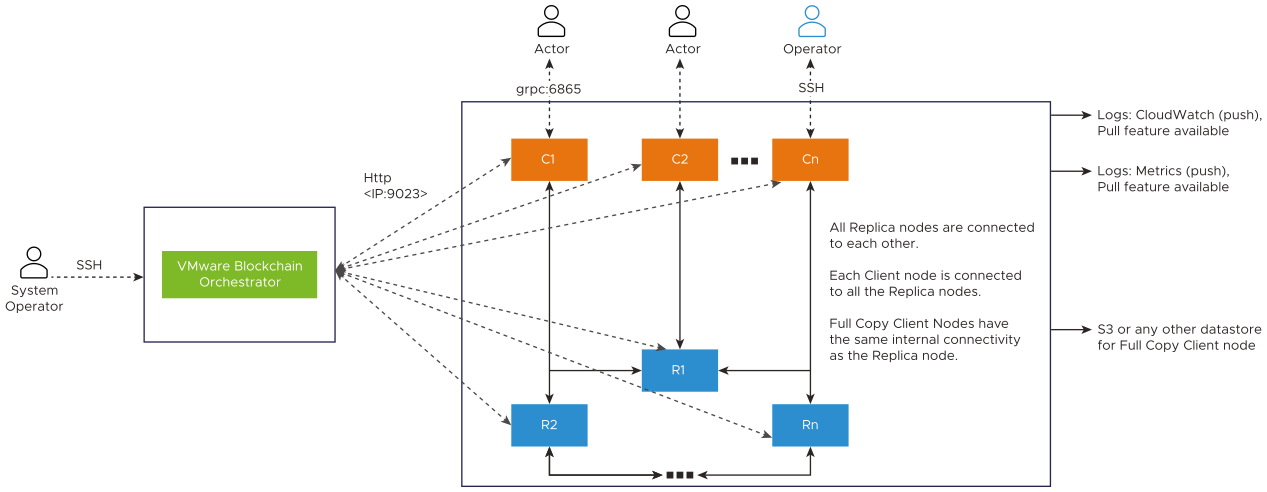VMware Blockchain is an enterprise-grade decentralized trust platform. VMware Blockchain enables you to transact and share data securely.
With VMware Blockchain, you can create permissioned decentralized business networks. The decentralized trust platform removes the need to rely on a central repository of data that is a single point of failure.
VMware Blockchain can be deployed either on-premises or on the AWS cloud.

The external party application makes requests to the Client node and waits for a response. Sample requests load a new smart contract, list the existing active smart contracts, or activate a function within an existing smart contract.
A request might activate a smart contract function that fetches a balance that does not change the state. The request can also activate a smart contract function that transfers funds from one party to another, which changes the state.
The application sends Daml commands to the Client nodes using a Daml Ledger API interface. The Daml Ledger API interprets these commands and sends equivalent transactions to the Replica Network as requests. Replica nodes in the network receive the requests, execute these requests, send the results through a consensus protocol, and the results are persisted.
The Daml Execution Engine executes the requests, which changes the state. The state is captured in an authenticated key-value store on each Replica node. In addition, each Replica node has a local key-value database store (RocksDB), which stores the state.
Some requests write new values to the state, which changes the state. The request execution results are returned to the Client nodes that submitted the requests. Each Client node receives a subset of the state that the Client node is allowed to access.
The Client node then sends the results back to the application.
Network Connectivity and Security
For the AWS network, VMware Blockchain nodes must be present within an AWS region. The VMware Blockchain nodes can be distributed across multiple Availability Zones.
